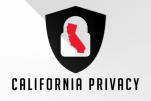
California Chamber of Commerce Policy Advocate Sarah Boot penned the following update on the CalChamber-supported privacy bills for the Capitol Insider blog.
Well, you can tell by the way we worked these privacy bills—we walked the halls and made time to talk—to legislators.
So far, the CalChamber Privacy Coalition’s hard work to draft and advocate for reasonable, legislative fixes to the California Consumer Privacy Act (CCPA) has largely paid off. Friday, May 31, marked the house of origin deadline, and all but one of our bills (the fix for targeted, online ads) made it out of the first house.
Still Alive
These important bills are still alive:
• AB 25 (Chau; D-Monterey Park) Clarifies the definition of consumer to exclude employees or job applicants.
Without clarifying legislation, a “consumer” under the CCPA would include employees of or job applicants to a business. Not only will this create huge, additional compliance costs for businesses for something never intended by this law designed for “consumers” — it could lead to serious, unintended consequences. For example, an employee accused of sexual harassment could ask a business to delete complaints about them. (Send a letter in support)
• AB 846 (Burke; D-Inglewood/Low; D-Campbell/Mullin; D-South San Francisco) Clarifies access to customer loyalty and rewards programs.
Under the CCPA, frequent flier miles, hotel points, and other rewards programs could be in jeopardy. AB 846 would ensure loyalty and rewards programs can continue by fixing language in the CCPA that could make them unlawful. (Send a letter in support)
• AB 873 (Irwin; D-Thousand Oaks) Clarifies the definition of personal information.
The CCPA defines personal information too broadly—as any information that is “capable of being associated” with a consumer or household. The breadth of this definition creates an unreasonable burden on businesses. For example, if a customer makes a purchase in a store and later asks the store for access to the customer’s personal information, the store could be required to search security camera footage from the day the customer made a purchase to find where the customer appears on the film and to provide that data to the customer because the business is technically capable of doing so. AB 873 fixes this problem by making the definition of personal information more reasonable — without eroding privacy rights. (Send a letter in support)
• AB 874 (Irwin; D-Thousand Oaks) Clarifies the definition of “publicly available” information.
The CCPA limits the use of publicly available government records in a way that is unconstitutional and that creates practical problems for businesses that rely on the free flow of public records information, including those involved with real estate, journalism, credit reporting, and many more. AB 874 fixes this problematic language in the CCPA. (Send a letter in support)*
• AB 1146 (Berman; D-Palo Alto) Protects consumers’ access to vehicle safety information.
Under the CCPA, consumers could exercise their privacy rights to delete data or their right to opt out of the “sale” of their personal information and unknowingly find themselves unable to receive information regarding necessary vehicle repairs relating to warranty work or a safety recall. This is a dangerous, unintended consequence of the CCPA’s hasty drafting, and AB 1146 will fix it. (Send a letter in support)
• AB 1416 (Cooley; D-Rancho Cordova) Ensure businesses can continue to prevent identity theft and other crimes.
The CCPA unintentionally undermines businesses’ efforts to protect consumers from identity theft and to prevent other crimes, like money laundering or human trafficking.
Additionally, the CCPA unintentionally places restrictions on the sale of data to governmental entities that will have a profoundly negative impact on many crucial government services, including reuniting foster youth with relatives, as well as fraud prevention in governmental benefits programs. AB 1416 fixes these problems. (Send a letter in support)
• AB 1564 (Berman; D-Palo Alto) Removes unreasonable burden on small businesses.
AB 1564 would remove the requirement that all businesses must staff a 1-800 number for consumers to call and exercise their CCPA rights. This fix is crucial for small businesses who do not have the resources to staff a 1-800 number. (Send a letter in support)
Challenge
Although the language in almost every single one of these bills has been significantly narrowed through negotiations with privacy advocates and committees, we still face some opposition to all but one of them (AB 874). That will present a challenge for us as we approach what may be our highest hurdle—the Senate Judiciary Committee. The committee chair, Senator Hannah-Beth Jackson, has indicated she may not be open to any of the business community’s proposed fixes to the CCPA.
Now, it’s alright, it’s OK—but you can’t look the other way. We’ve gotta make sure these bills ain’t goin’ nowhere. Somebody help me, please!
To keep these bills stayin’ alive—please sign your business up for our Make Privacy Work coalition and contact your legislator. You can find more information at https://makeprivacy.work.

